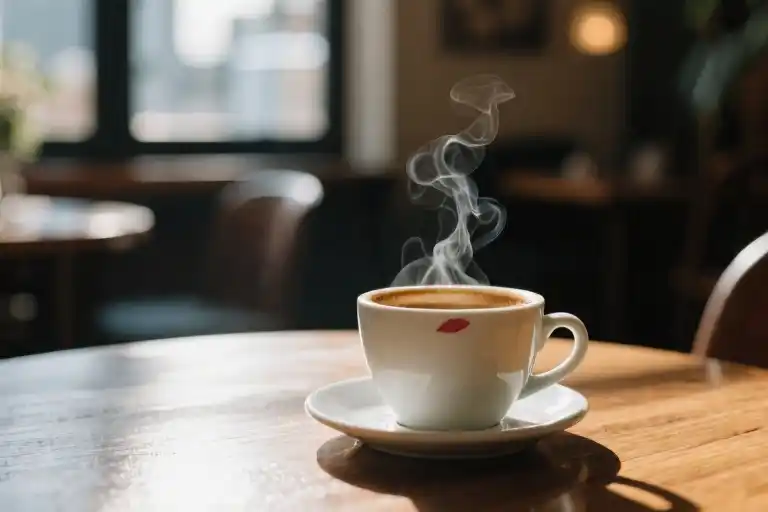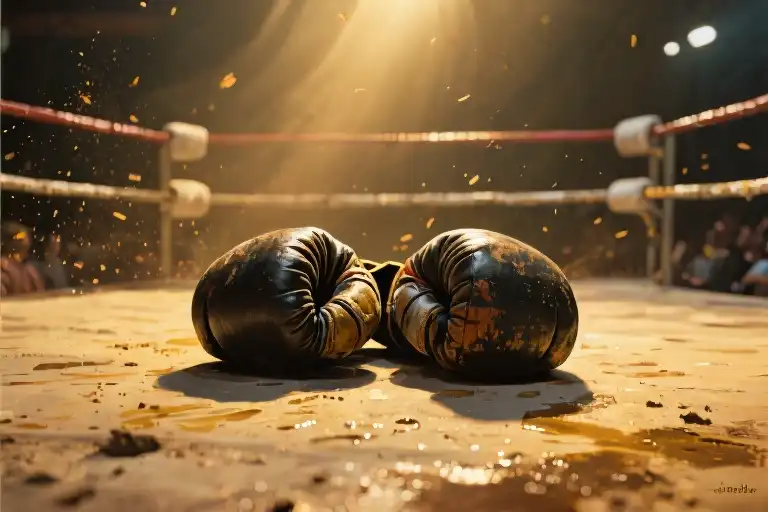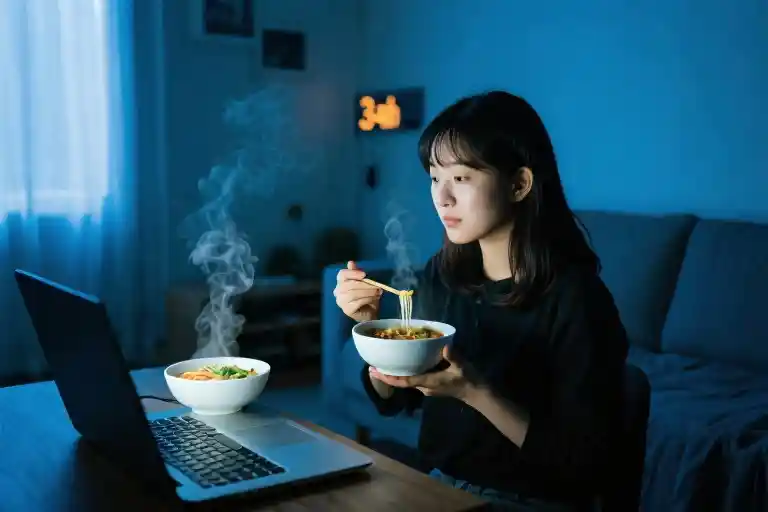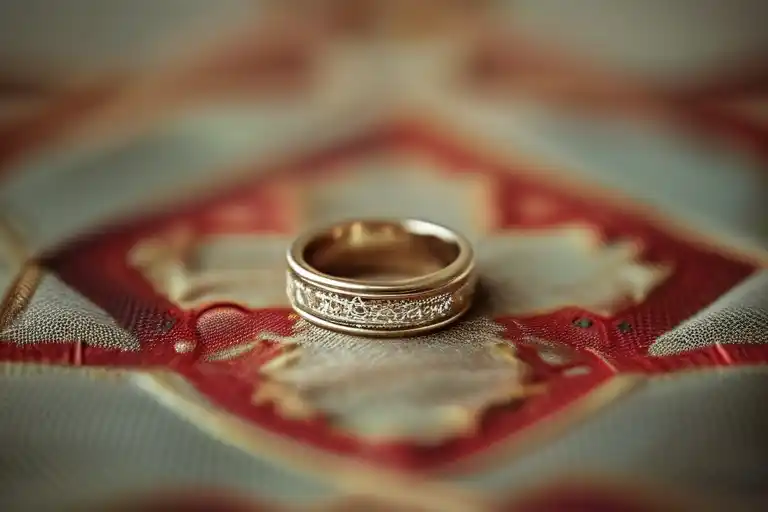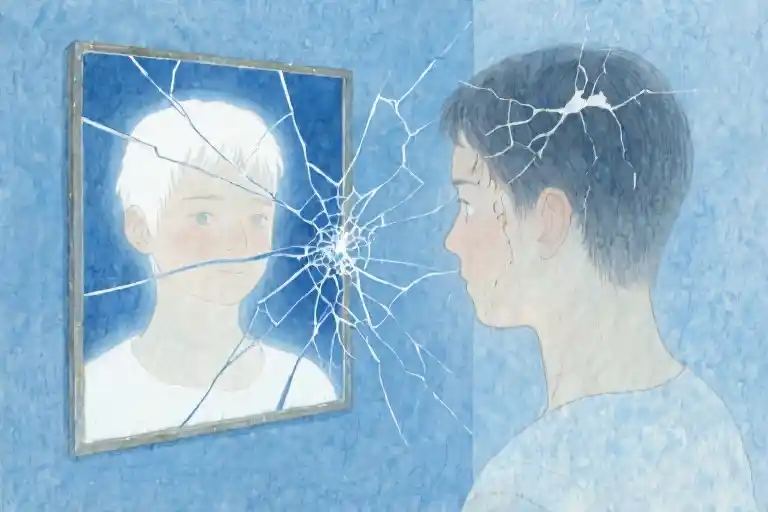The café hums with the quiet energy of late afternoon, the kind of place where time slows just enough for conversations to linger. Steam rises from our cups between us, curling into the air like unanswered questions. He sits across from me, close enough that our knees almost touch beneath the small table, yet his attention drifts past my shoulder again and again.
His fingers tap an absent rhythm against his coffee cup—black, no sugar, the same order I’ve memorized after three years of these shared moments. But today, like most days, I’m not what holds his gaze. Over my shoulder hangs that damned painting, the one with her face bathed in golden light, the one he calls ‘Epiphany’ in that reverent tone reserved for sacred things.
To anyone watching, we must look like two halves of a whole. His leather jacket draped over the chair behind me, my scarf tangled with his on the coat rack by the door. The barista even smiled knowingly when we walked in, as if we’re characters in some predictable love story. But stories need narrators, and no one hears the words screaming inside my head: He’s never really here with me.
His eyes catch the painting’s reflection in the window behind me, and that’s when I see it—the subtle shift. His pupils dilate, his breath shallows, and for one heartbreaking moment, he’s not sitting in this cozy corner with me. He’s wherever she is, that girl made of brushstrokes and longing, the one who exists without flaws because she’ll never have to be real.
My coffee grows cold as I watch him watch her. The irony tastes bitter—I could list every detail of his face from memory: the scar above his eyebrow from a childhood accident he laughs about now, the way his left dimple appears only when he’s genuinely amused. Yet he looks through me like I’m glass, transparent to the vision he’s created in his mind.
Outside, autumn leaves stick to the café window like fragile reminders of things that fade. I press my palm against the table, grounding myself in the solid wood grain, the tangible reality he seems determined to escape. The bell above the door jingles as new customers enter, but neither of us turns. He’s chasing some dream in the paint, and I’m chasing the ghost of what could be if he’d just look at me—really look—for once.
Three sugar packets sit untouched between us. He knows I take my coffee sweet, just like I know he’ll order the same blueberry scone every Thursday. These small intimacies build castles in my mind, until I almost believe we could be something more. Then his phone lights up with the painting’s image as his wallpaper, and the fantasy crumbles like the scone crumbs between us.
‘You’re quiet today,’ he remarks, finally meeting my eyes. There’s concern there, the kind reserved for good friends and stray cats. It’s not the gaze he gives her—that look of drowning in something greater than himself. My throat tightens around all the words I’ll never say: I’m quiet because my voice gets lost in the space between what we are and what I ache for us to be.
So I smile, the practiced one that doesn’t reach my eyes, and stir my cooling coffee. ‘Just thinking,’ I lie. The truth—that I’m memorizing the way afternoon light turns his irises from hazel to gold—would reveal too much. Better to let him believe in our carefully constructed fiction: two friends sharing coffee, nothing more, nothing less.
Except nothing about this feels simple. Not when my pulse still races when he leans in to steal a sip from my cup, not when I catch myself holding my breath waiting for his texts. The barista refills his coffee without asking, another silent observer convinced of our coupledom. If only she knew the cruel joke—we’re a love story with only one character in love.
He checks his watch, that expensive one his father gave him last Christmas. ‘I should get going,’ he says, already half-standing. ‘Need to put finishing touches on the new piece before the gallery meeting.’ His voice lifts when he talks about his art, about her. I nod, swallowing the ‘stay’ that threatens to spill out.
As he shrugs into his jacket, I notice paint under his fingernails—the same deep crimson as the flowers in her hair in that damned painting. Evidence of his devotion, left behind like clues to a mystery everyone sees but me. He pauses at the door, turning back with a smile that could sustain me for days. ‘Same time next week?’ he asks, as if there’s any chance I’d say no.
The bell jingles again as he leaves, taking all the oxygen with him. My fingers trace the rim of his abandoned cup, still warm from his hands. Across the room, the painting watches me with her perfect, unchanging smile. We both know the truth: in this story, I’m the footnote, the background character, the one who loves without being seen.
Outside, the wind picks up, sending leaves skittering across the pavement. Somewhere beyond the glass, he’s walking away, already lost in thoughts of her. And I remain—always remaining—caught between the warmth of what we pretend to be and the cold reality of what we are.
The Boundary Between Reality and Illusion
The afternoon light slants through the studio windows, catching motes of dust that swirl like tiny galaxies between us. He’s hunched over that painting again – the one with her face. His fingers move with reverent precision, adjusting the frame by millimeters, wiping away invisible smudges with the edge of his sweater. I watch his careful movements from my perch on the drafting stool, my own hands automatically sorting through the chaos of his charcoal sketches.
Three years. Three years of being the steady presence in his creative storms. I could map the timeline of our friendship through these small acts of service – finding his glasses (always misplaced) after all-nighters, brewing endless cups of coffee that grow cold while he works, listening to half-formed ideas at 2 AM when inspiration strikes. My fingerprints are etched into the mundane architecture of his life, invisible but holding everything together.
And her? She exists in the golden hours. The times when sunlight hits his workspace just right and he’ll pause mid-sentence, staring at some middle distance where she lives in his mind. I’ve catalogued the changes in him when she occupies his thoughts – the way his voice drops to something softer, how his fingers twitch toward his sketchbook as if compelled. Last winter, he wrote seven songs about the curve of her jawline before remembering to pay his heating bill.
The contrast would be funny if it didn’t hollow out my chest. Here on this ordinary Tuesday, I’m flattening the crumpled edges of his discarded drawings while he polishes a fantasy. The graphite smudges on my fingertips might as well be metaphors – temporary marks that won’t last, unlike the oils he uses to immortalize her.
A memory surfaces unbidden: last month when he caught flu, I spent three days replacing his fever-damp sheets, reading aloud from his favorite art books until he slept. On the fourth morning, weak but recovering, he’d asked for his watercolors. “I dreamed about her eyes,” he’d said, as if explaining something sacred. The glass of orange juice I’d brought sat untouched on the nightstand.
Now, watching him tilt the painting to catch the light, I understand the cruel mathematics of affection. I could fill notebooks with all the ways I know him – that he hums off-key when concentrating, that his left eyebrow arches higher when skeptical, that he needs exactly two sugars in his tea but will pretend to take it black around new people. Yet none of this knowledge translates to the currency that matters. She owns his imagination with a single captured glance, while I remain the practical footnote to his creative life.
The studio clock ticks loudly as I align another stack of sketches. There’s comfort in this ritual, in being needed even peripherally. He murmurs something about the play of shadows across her collarbone, not noticing when I smooth a torn corner of paper with more care than necessary. This is our equilibrium – him reaching for something luminous and untouchable, me quietly anchoring him to earth.
Sometimes I wonder what would happen if I stopped catching him when he stumbles out of these artistic trances. If I let the coffee run out, left his sketches disordered, allowed reality to be as messy as his process. Would he notice the absence of my maintenance? Or would the space I occupy simply get absorbed into his next masterpiece about her?
The answer lingers in the way his thumb brushes the edge of the canvas – tender, devoted, completely unaware of me watching.
The Silent War
Moonlight spills through the half-open curtains, painting silver streaks across his sleeping face. I sit cross-legged on the floor beside his bed, my back against the mattress, close enough to hear the steady rhythm of his breathing. This has become my secret ritual—these stolen moments when the world is quiet, and for once, his attention isn’t claimed by her.
If only I could become canvas, I think, tracing the outline of his profile with my eyes. Then perhaps he’d look at me with that same reverence. The thought tastes bitter, like oversteeped tea left too long in the cup. I know better than to indulge such fantasies, yet here I am, collecting these fragile moments like pressed flowers between pages of a book he’ll never read.
Across the room, the mirror catches my reflection—dark circles under tired eyes, lips chapped from worrying them between my teeth. The contrast couldn’t be sharper: where the girl in his painting exists in perpetual golden-hour glow, I’m all sharp edges and uneven shadows. She’s captured in perfect brushstrokes, every hair placed just so, while my reality is messy ponytails and yesterday’s mascara.
A car passes outside, its headlights briefly illuminating the sketchbook on his nightstand. Even in sleep, his fingers twitch toward it, as though reaching for her. I’ve memorized every page—dozens of iterations of the same face, each more idealized than the last. The real tragedy isn’t that he loves her; it’s that the ‘her’ he loves doesn’t exist beyond the pigments on paper.
My phone buzzes silently in my pocket—3:17 AM. Soon, dawn will come, and with it, the careful reconstruction of my daytime mask. I’ll laugh at his jokes about being ‘married to his art,’ nod when he describes her imagined voice, swallow the lump in my throat when he absentmindedly calls me ‘buddy.’ The war isn’t in dramatic confrontations; it’s in these thousand tiny surrenders, these daily acts of self-erasure.
As I rise to leave, my knee pops audibly. He stirs but doesn’t wake. For one reckless second, I consider bending down, letting my lips graze his forehead—claiming some small victory in this endless campaign of near misses. Instead, I adjust his blanket the way I know he likes it, tucking the edges just so beneath his shoulders. Even my rebellions are quiet, considerate things.
The mirror catches me again on my way out. This time, I don’t look away. Let me remember this face, this moment, this particular shade of heartbreak. If love is a kind of art, then perhaps this is my masterpiece—the invisible brushstrokes of devotion no one will ever frame.
The Breaking Point
The rain tapped against the café window like impatient fingers, a steady rhythm that matched the restless beat of my heart. He sat across from me, eyes alight with an excitement I hadn’t seen in months—no, not for me, never for me. His hands gestured wildly as he spoke, coffee forgotten, steam rising between us like the unspoken words in my throat.
“I’m doing it,” he announced, voice cracking with enthusiasm. “A whole exhibition just for her—twelve new pieces, maybe more. The gallery said yes this morning.”
Her. Always her. The girl in the painting who never aged, never disagreed, never had bad hair days or said the wrong thing. My fingers tightened around my cup—the one I’d chosen specially because its earthy glaze matched his favorite sketchbook. A hairline fracture appeared along the handle, unnoticed.
Outside, the drizzle became a downpour. Water streaked the glass like tears, blurring the streetlights into golden smears. I watched a droplet trace the same path three times before realizing my own cheeks were wet. The scalding coffee had overflowed onto my hand, mixing with rain blown in through the cracked window.
“That’s… amazing,” I managed. The lie tasted bitter, like overbrewed espresso. My thumb rubbed the cup’s fissure absently—how long before it shattered completely?
He didn’t notice. Of course he didn’t. He was already sketching ideas on a napkin, lips moving silently as he composed love letters to a face made of brushstrokes. I memorized the way his eyelashes cast shadows when he looked down, the faint ink smudge on his pinky, the three freckles behind his ear that formed a tiny triangle. These were my exhibits, my private collection of stolen moments.
A loud crack split the air—thunder or my cup breaking, I couldn’t tell. Warmth spread across my palm as dark liquid pooled around the chipped porcelain. He glanced up then, finally seeing me. “Oh! You’re—” His brow furrowed as he pushed a clean napkin toward me. “Careful with that.”
I wanted to laugh. I wanted to scream. Careful? After years of handling my fragile heart around his carelessness? The irony burned worse than the coffee stain seeping into my sleeve.
“Thanks,” I whispered, dabbing at the mess. The napkin came away stained the exact shade of burnt umber he used for her hair. Another coincidence to add to my museum of unrequited love.
Rain drummed harder now, filling the silence where my confession should have been. Somewhere beneath the table, my knees pressed together to stop their shaking. The café’s heater hummed, blowing dry air that did nothing to warm the cold truth settling in my chest:
This was the moment. This was when I should walk away.
But when the waitress came to clear the broken pieces, I heard myself say, “Another black coffee, please. No sugar.” His order, not mine. Always his.
The cup had broken, but I remained—cracked, leaking, yet still holding whatever love I had left.
The Breaking Point
The bathroom tiles felt cold against my forehead as I pressed against them, trying to steady my breathing. The mirror showed everything I wanted to hide – red-rimmed eyes, smudged mascara, the raw vulnerability of unrequited love written across my face. Water dripped from the faucet in rhythmic drops, each one counting the seconds I’d wasted loving someone who saw straight through me.
I watched my reflection cry with silent intensity, the kind of crying where your shoulders shake but no sound escapes. My hands gripped the sink edge so tightly my knuckles turned white. This was the aftermath of hearing him talk about her again – that animated spark in his eyes when describing ‘the curve of her smile’ and ‘how the light catches her hair just so.’ Meanwhile, I’d been standing there holding two coffee cups, one with the exact three sugars he liked, forgotten as soon as he started speaking.
Why does loving him feel like holding a lit match until it burns through my skin? The question pulsed through me as I splashed icy water on my face. The shock of cold brought momentary clarity. This wasn’t just about him choosing her over me – it was about him choosing a fantasy over reality, an idealized version of love over the messy, imperfect person standing right beside him.
Reaching for my makeup bag, I methodically began covering the evidence of my breakdown. Concealer under swollen eyes, powder to dull the redness. With each stroke of the sponge, I rebuilt the facade of the ‘reliable friend’ – the role I’d perfected over years of swallowing unspoken words. The transformation felt symbolic: hiding my pain to preserve the fragile balance of our relationship.
As I blended the last patch of concealer, a terrible realization settled in my chest. Maybe this one-sided love persisted because it was safe. Fantasies couldn’t reject you. Paintings never forgot your birthday or took you for granted. In his devotion to an untouchable ideal, he’d built himself a shelter from real intimacy with all its risks and imperfections. And I? I’d built my own shelter in the shadow of his inattention, where rejection was expected and therefore couldn’t destroy me.
The fluorescent light buzzed overhead as I stared at my now-perfect reflection. Who was I beneath these layers of quiet longing and careful concealment? The girl who memorized his coffee order but never spoke her own heart? The steady presence who enabled his fantasies while starving for reality?
My phone buzzed on the counter – a message from him: You still coming to the gallery opening? I need my lucky charm. The casual affection in those words cut deeper than indifference ever could. He needed me, just not in the way I needed him.
I typed back Wouldn’t miss it before I could reconsider, then added three heart emojis – a coward’s confession. The powder compact snapped shut with finality. Some truths were too painful to examine directly, like why we cling to people who make us feel invisible, or how love can become a habit we’re afraid to break.
Stepping back into the world meant buttoning my hurt beneath a cheerful expression, meant listening to him extol her virtues again, meant pretending my heart wasn’t splintering each time. But leaving meant facing the terrifying emptiness of a life where I wasn’t defined by loving him. So I would go to that gallery opening. I would smile when he smiled. I would love him silently, because that was the only way I knew how to love without completely losing myself.
The girl in the mirror looked put together now, no trace left of her earlier unraveling. I wondered if this was how paintings felt – flawless surfaces hiding the cracks beneath.
The café bell chimes softly as I step inside, the familiar scent of roasted beans wrapping around me like a worn sweater. My fingers trace the edge of the counter—smooth, cold, real—as I take my usual seat beside the window where light paints checkered patterns on the wooden surface. The barista already knows my order, but today I speak first: ‘One more black coffee, please. His favorite.’
Rain streaks the glass beside me, blurring the world outside into watercolor smudges. Three years of these afternoons, three years of memorizing how he takes his coffee (no sugar, just a hint of cinnamon), three years of being the steady hand that catches his falling sketches. Yet when the barista slides the cup toward me, its surface reflects only my own face—not hers, never hers.
I watch the steam curl upward, vanishing like the words I’ll never say. Somewhere across town, he’s hanging her portrait in a gallery, securing each nail with the care he never gave to my quiet devotion. The cup warms my palms, but the heat can’t reach where it matters.
‘Drink it before it gets cold,’ the barista suggests kindly.
I smile and let the bitterness linger on my tongue. This is how love exists sometimes—not in grand gestures or whispered confessions, but in the spaces between actions, in the orders we place for someone who’ll never taste them. The painting will fade. The coffee will cool. And I’ll still be here, loving in a language he doesn’t understand.
Some loves are meant to exist in the margins, like the blank space around a masterpiece—unnoticed, but necessary all the same.

